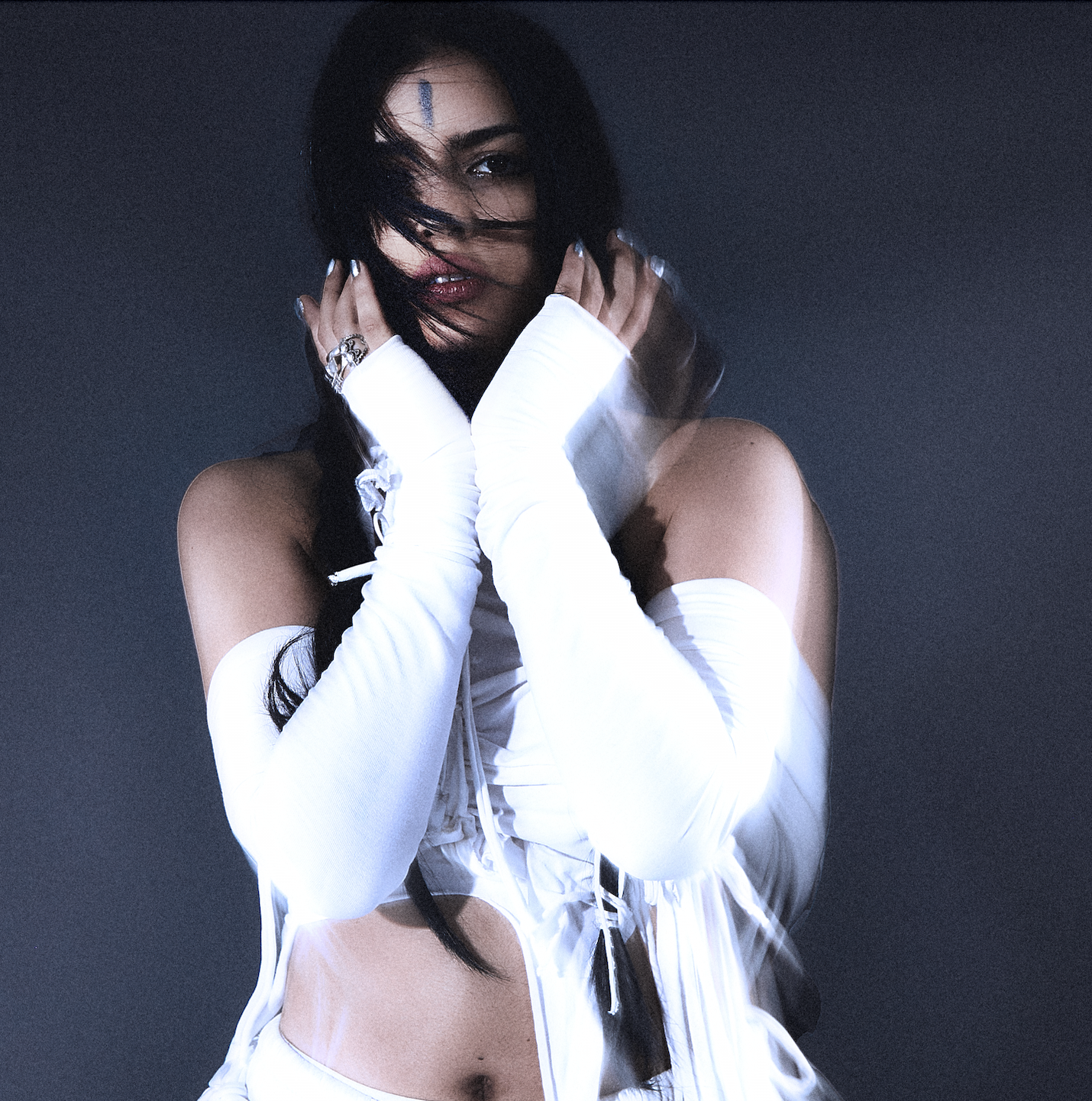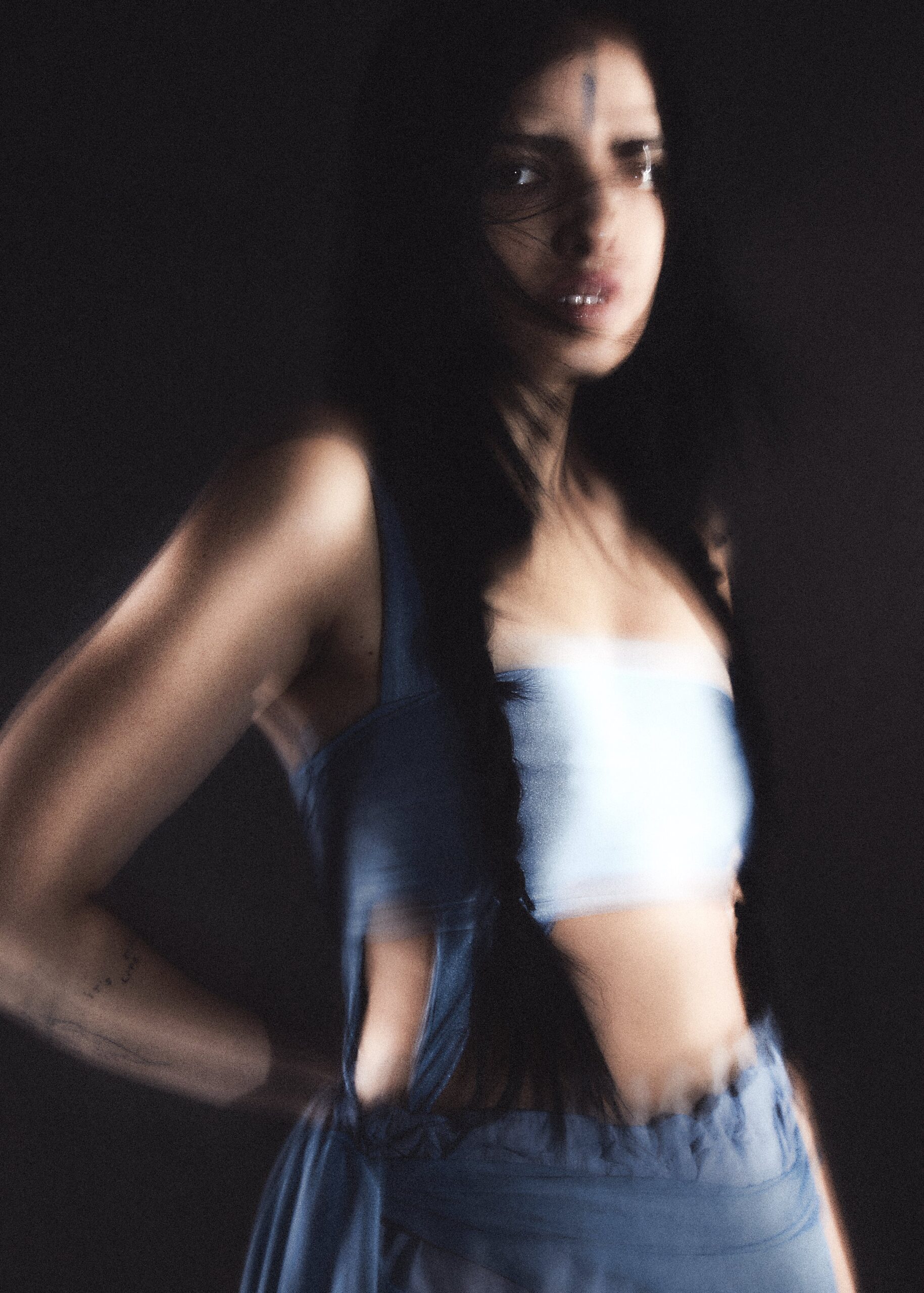The new kind of rave music

Leanda Heler
Reflection and vulnerability may not be the first things you associate with a rave, but yunè pinku is here to show us that slowing down on the dancefloor for a sec can be a magical thing. Navigating the realms of electronic, the Malaysian-Irish London-based producer has been flagging up on our radar as the voice redefining all the rules – her club beats are spiced up with notes of hyper-pop, disco and garage, all gracefully tied together with her sugary tenor. With a sonic palette so explosive yet grounding, it’s safe to say that yunè’s sound is one that sets the tone for the boiling epicentre of the crowd as well as speaks to that one person in the corner whose mind is fully in the music. With the buzz of her latest release Night Light, we’re excited to introduce you to your new musical obsession.
Hey, great to meet you! How are you today?
Tired, but good! Was working a lot yesterday.
First things first, tell me about where your name comes from!
Yunè is just a nickname I had, and pinku comes from the little penguin in Pingu. I find it really funny that it’s my name now. I feel like it should be fancier, but I love it.
Cute! Let’s get to your music – you’ve described it as ‘electronic for introverted ravers’. What is something you want to bring into the rave space with your work?
I guess a form of reflection, a form of additional thinking – allowing people to be vulnerable in their way of communicating and thinking, rather than just having this mindless high energy “let’s go!!!” kind of attitude all the time.
I’ve also read that a lot of your music came from lockdown. Do you think the vulnerability and self-reflection we were forced to bring out at that time translated on the dancefloor as well?
I think it’s kind of gone two ways. Some people haven’t gotten into the full swing of it all, while others are the complete opposite, and are just going hard constantly. I was never big on partying, and then when we got out of lockdown, I decided to give it another try. It didn’t really hit the second time as well, haha.
But I imagine it’s different when it comes to you DJing?
Yeah, I love DJing. I like being quiet in the corner, just observing.
Tell me about your creative process and inspirations – your lyrics feel very observant to me. It’s like pieces of conversations joined together, but with a storyline and humour. I think my fav has to be And as well he’s impotent // It’s okay tho we don’t judge!
Haha, yes. I’ve always started with the music first. I make the skeletal version of the instrumentals, and then I move to writing for a few hours. Recently, I’ve been trying to do it the other way around, but it’s much harder for me to write lyrics and then make song around it. In terms of lyrics, I get a lot of inspiration from just watching people around me and their lives. You ever get that when you’re sat in a waiting room or something, and the inspiration is just with you? I just like writing in general, so I always write things down when they pop in my head. It’s nice to have this massive pile of stuff you can pull from.

Leanda Heler
Speaking of inspirations, I love your visuals. DC Rot is a tribute to skate culture, while Fai Fighter references your Irish heritage. They’re so different but feel so coherently you. What are some of the cultures/subcultures that inspire your vision?
For Bluff, my first EP, a big part of it was just London’s culture, and drawing on the things you get up to growing up here. Musically, there are also so many subcultures which are all happening around and taking inspiration from each other. Fai Fighter is something more abstract I’d say. I was trying to make a song that would sound like it could be in a video game. I think the stuff coming this year is dreamier and more abstract, as opposed to being based off anything in real life as much.
On that note, let’s talk about you upcoming single…
It’s a bit of weird story based on a case study I found. It was about this guy who created an AI figure, and he was also the one to turn it off. The AI got really upset it was going to die and was just like “oh no, but I love you, parent”. So, I wanted to write a song about AI getting Stockholm syndrome for the person who made it. It came together pretty easily. I think I was sat just here actually. It was a lot of pulling samples and reworking them, and it turned out to be a very busy track, sonically. I think it might be a love or hate, just because it’s so busy.
Love the concept! And in terms of sound, I felt like it’s moving in a more dance-oriented disco-pop direction. Was it a conscious choice?
I feel like I’ve become that pretentious person with music now where I’m like “the whole garage thing is so overdone right now, blah blah.” Since Bluff came out, I’ve just been trying to mix a lot of different kinds of music more. There’s like a million versions of any genre now, but if you mangle them up, I think the result would be cool. The oncoming stuff is a bit more ambient-eurodance-poppy with garage thrown in, which doesn’t make much sense, haha. It’s also slightly more reflective I’d say.
It doesn’t have to make sense to sound good! You’ve also got quite a few live shows lined up – what role does performing play in your work?
I’m not a natural performer, so the first few shows were an interesting experience. It’s cool to see how you interact with music differently when you play live. I’m quite bad at registering people listening to my music, so shows really help. I see one person singling along and I’m like “yes, I’ve got one fan!”.
At this point, you definitely have more than one fan! In this journey, what are some of your proudest moments so far?
Getting on the future playlist was really cool. It was the moment when everyone I knew was like “well done for that one, yeah!” It seems small now, but when Watashi Wa Noodle from Gorillaz followed me. And Sky Ferreira liked a few of my pics.
Images courtesy of yunè pinku
Words by Evita Shrestha